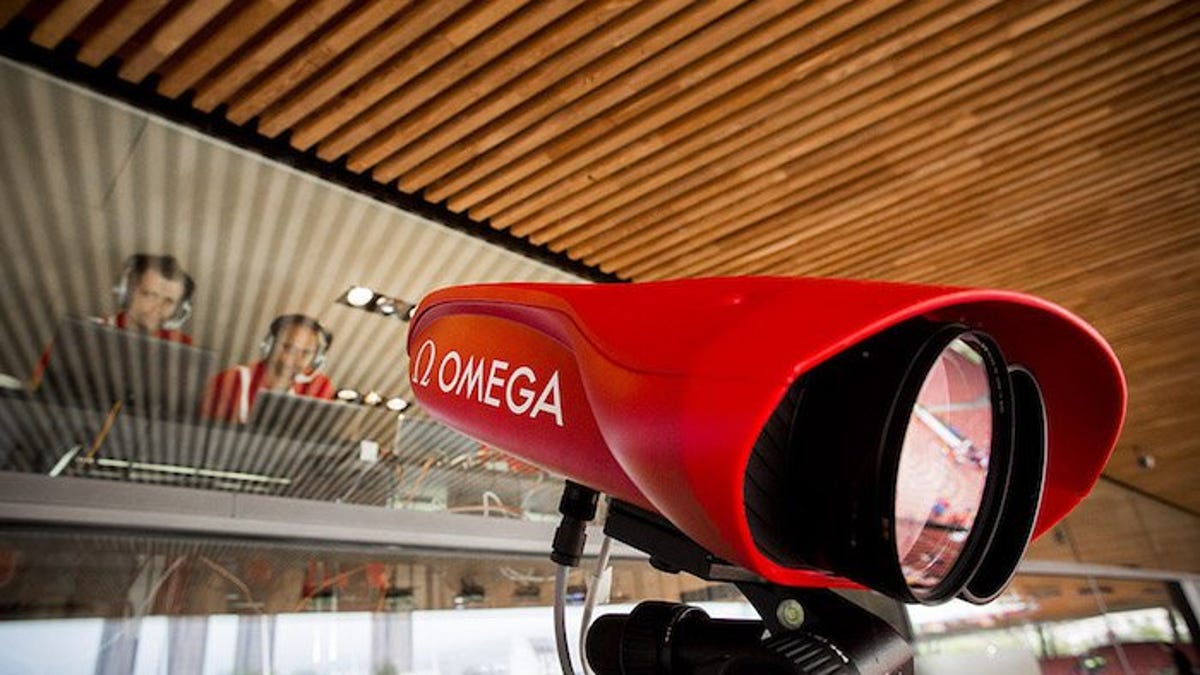This timing technology determines who wins the gold
For Olympians, the difference between first and second place can come down to almost no time at all. Omega Timing CEO Alain Zobrist and his firm make sure every millisecond counts.

Timing is everything.
Ask US Olympic swimmer Katie Ledecky, who was trailing by six tenths of a second at the halfway mark of the nail-biting, edge-of-your-seat women's 200-meter freestyle finals at the Rio Games on Tuesday night.
By the heart-pounding final turn, she had not only cut that gap but taken a lead. Ledecky touched the wall first -- just three-tenths of a second before Sweden's Sarah Sjöström -- to win her second gold medal in as many days.
"I saw I had the lead and I wasn't about to let it go, I could feel her there," the 19-year-old Ledecky told NBC Sports afterward. "That's the closest I've gotten to having to throw up in the middle of a race."
US Olympic swimmer Katie Ledecky celebrates winning a thrilling Women's 200m Freestyle final at the 2016 Summer Olympic Games in Rio de Janeiro, Brazil.
The razor-close finish is what Omega Timing CEO Alain Zobrist lives for. His unit has been the Olympics' official timekeeper for nearly a century. Omega's goal is both complex and simple. It wants to make sure its vast array of technology is precise and accurate for nearly 30 Olympic sports.
In Omega's arsenal: timers, touchpads, sensors, cameras and laser scanners.
Switzerland-based Omega's long history of furnishing timekeeping equipment for the Olympics started in 1932, when it provided 30 handheld stopwatches to keep track of winners at the Los Angeles Summer Games.
But "technology," Zobrist said, "has changed." Omega has dispatched 480 timekeepers to Rio, where they'll handle 480 tons of equipment.
That includes the Scan'O'Vision Myria camera, which can snap up to 10,000 high-definition images per second at the finish line in an effort to eliminate doubt as to a race's winner.
"Previously, it was a camera that took 2,000 pictures," he said.
Omega has also created a four-photocell technology to track movements and determine who's the winner.
"We placed a pressure sensor on the back of the starting blocks," Zobrist said. "So in case of a false start, the judge will immediately understand what an athlete did."
Omega also has a new laser-targeting detection system for archery events. Zobris said the system "scans the entire target so we would know very precisely where the arrow would hit, and get an instant result."
For golfers, Omega has created a small radar that provides real-time swing information, including ball speed, rotation drive and distance. It calculates the information within milliseconds of a golfer's swing and displays the data on one of Omega's 300-plus scoreboards at the Rio Games.
For swimming events, Omega has placed underwater lap counters inside the pools and special cameras above them. The cameras can capture roughly 100 images per second and can be used in close finishes, such as American swimming great Michael Phelps beating Japanese swimmer Masato Sakai by four one-hundredths of a second on Tuesday in the 200-meter butterfly finals.
The result secured Phelps a record-setting 20th Olympic gold medal. (He later captured his 21st gold medal by helping the US win the men's 4x200 freestyle relay.)
Zobrist said the cameras could come in handy when the touchpads that swimmers press at the end of races prove inconclusive. "It's the only sport where athletes stop their time themselves," he said.

